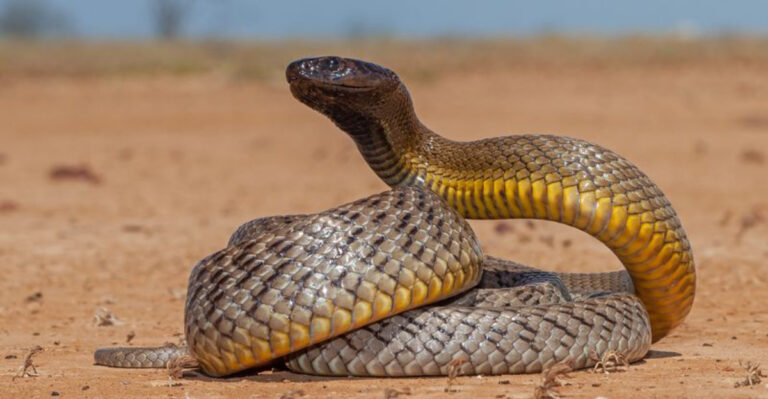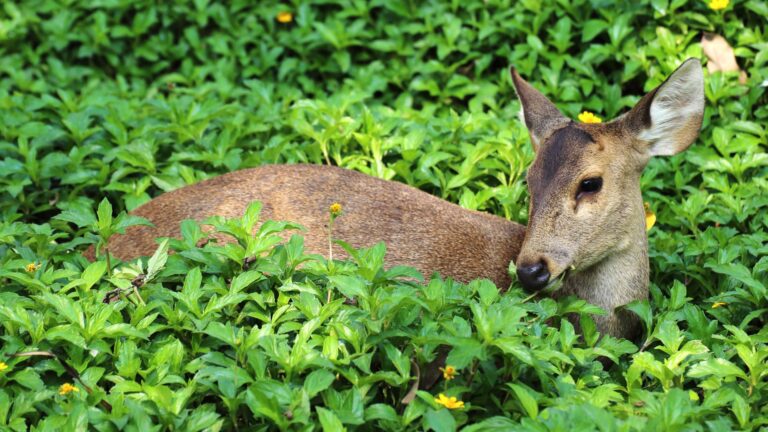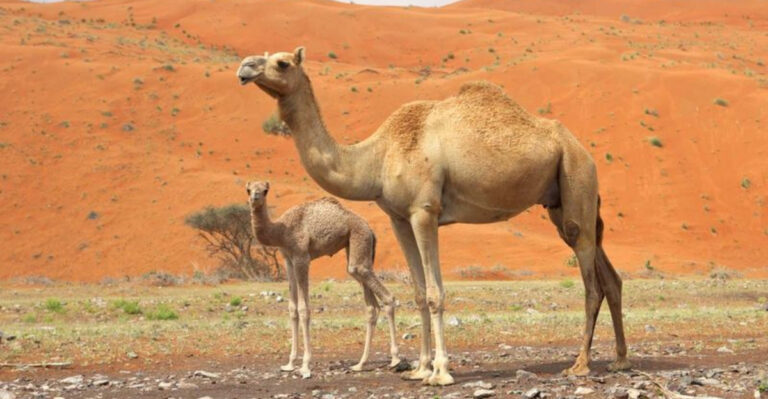What Do Horses Eat?
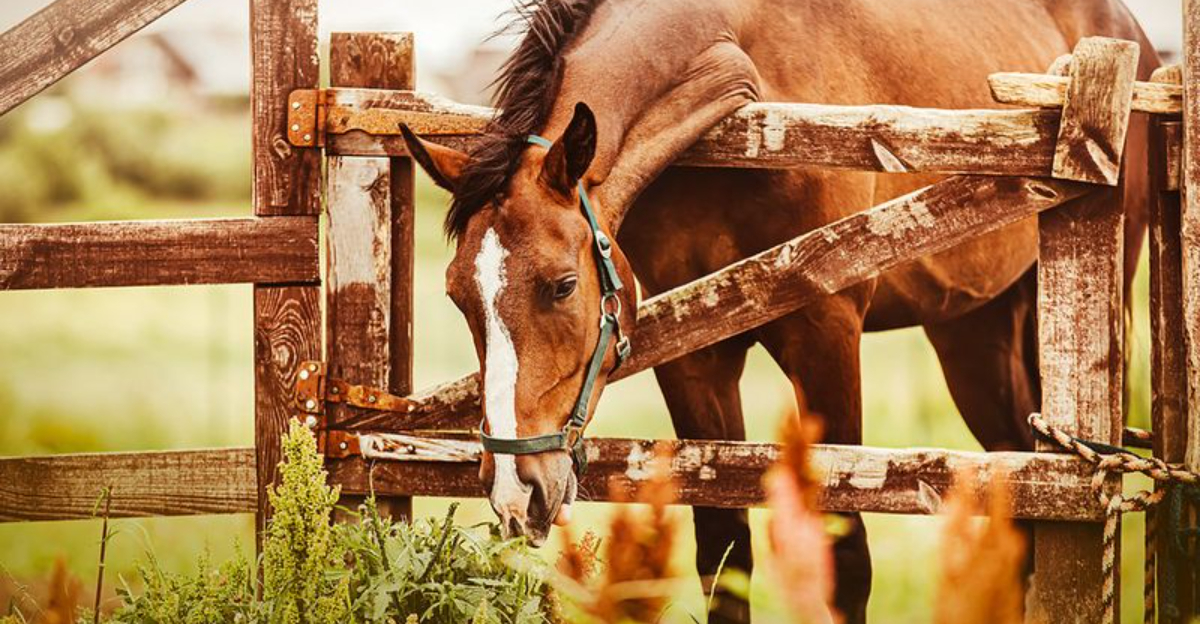
Ever wondered what fuels those magnificent 1,000-pound animals galloping across pastures? Horses have fascinating eating habits that keep them healthy and energetic. As herbivores, they spend about 15 hours daily grazing, with digestive systems perfectly designed for plant-based diets.
1. Fresh Grass
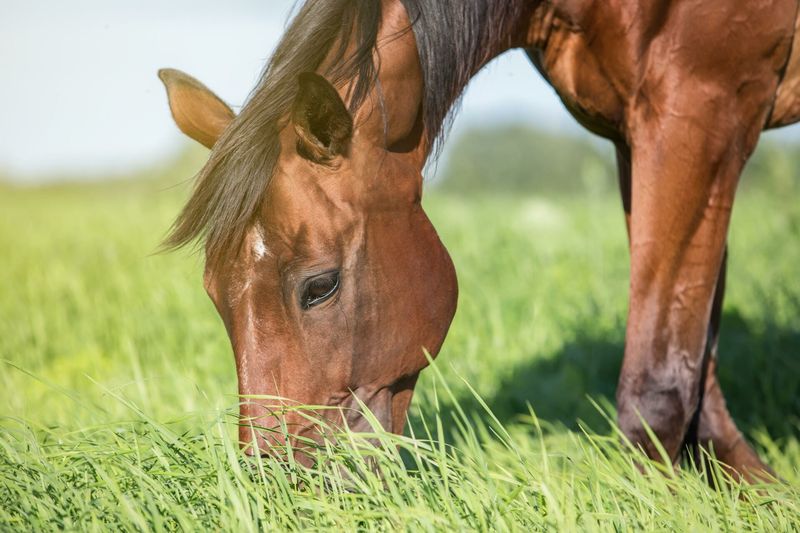
Nothing makes a horse happier than munching on lush, green pasture grass. Their lips expertly pluck tender blades while teeth tear and grind this natural food source.
Grass provides essential fiber, vitamins, and minerals horses need for digestive health. Different varieties like timothy, bermuda, and orchard grass offer varying nutritional benefits throughout growing seasons.
2. Quality Hay
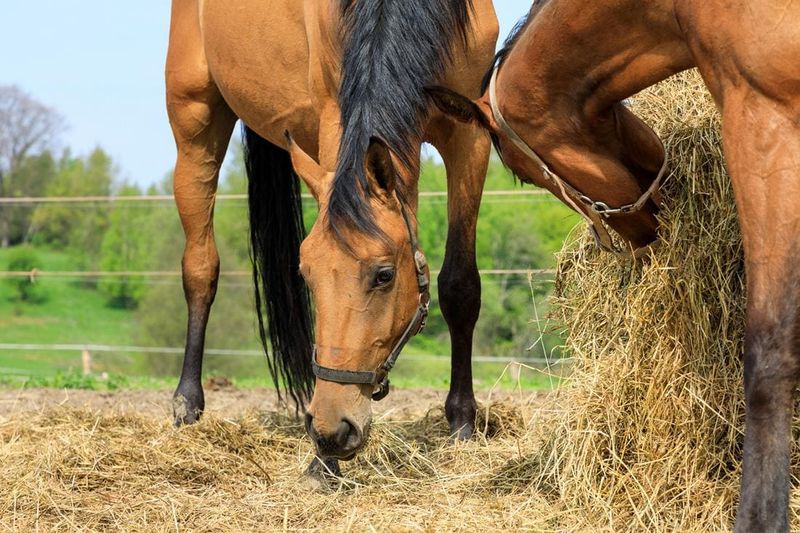
When pasture isn’t available, hay becomes the backbone of equine nutrition. Good-quality hay retains its green color, sweet smell, and isn’t dusty or moldy.
Most horses consume 1.5-2% of their body weight in hay daily. Popular varieties include timothy, alfalfa, orchard grass, and bermuda, each offering different protein and energy levels for various equine needs.
3. Alfalfa Cubes
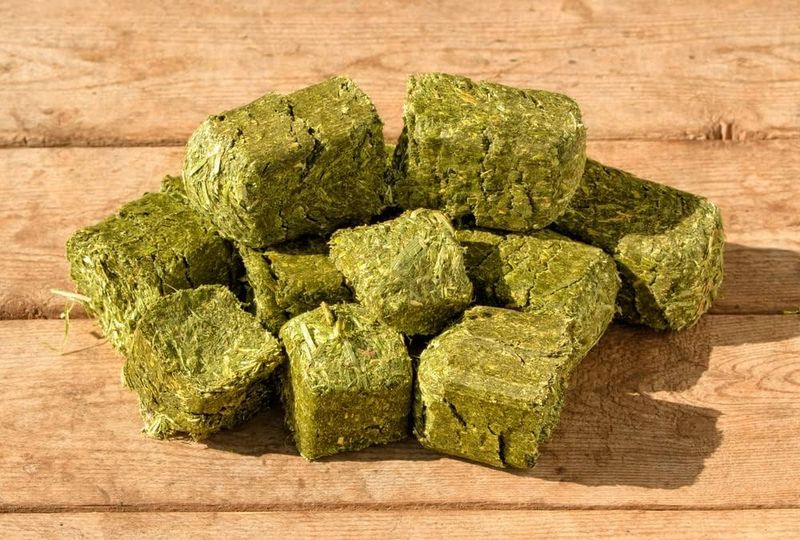
Compressed blocks of dried alfalfa make convenient, mess-free alternatives to loose hay. These protein-packed cubes can be softened with water for senior horses or those with dental issues.
Rich in calcium and protein, alfalfa cubes particularly benefit growing horses, pregnant mares, and hardworking equines. Their consistent quality makes them reliable nutrition sources when hay quality varies throughout seasons.
4. Grain Mixes
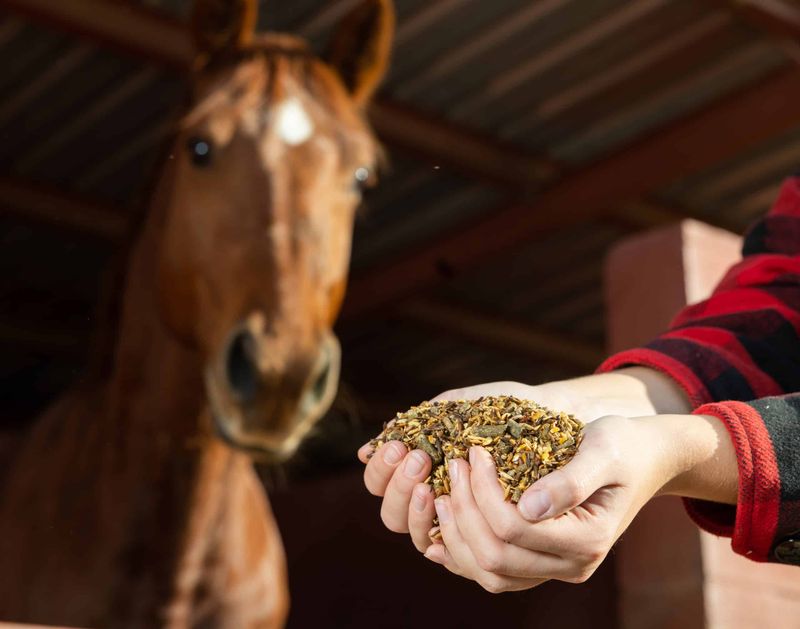
Oats, corn, and barley blended with molasses create energy-dense feeds horses find irresistible. These concentrated calories help maintain weight in working horses or those living in cold climates.
Commercial grain mixes often include added vitamins, minerals, and protein supplements. Smart horse owners measure grain carefully, as too much can cause dangerous digestive issues like colic or founder.
5. Carrots
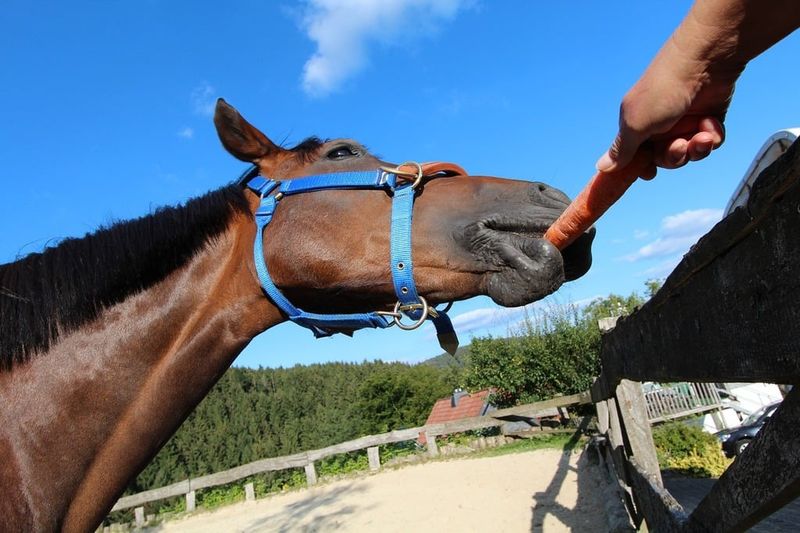
The quintessential horse treat makes eyes light up and ears perk forward in anticipation. Their sweet crunch and high moisture content make carrots perfect rewards during training sessions.
Beyond their appeal, carrots provide beta-carotene for eye health and vitamin A for immune function. Many horses develop specific preferences – some prefer whole carrots while others enjoy them chopped into coin-sized pieces.
6. Apples

Watch a horse devour an apple and you’ll witness pure joy – the crunch, juice, and sweetness create an experience they savor.
Most prefer them cut into quarters to prevent choking. While primarily a treat, apples offer hydration, fiber, and antioxidants. Smart horse owners remove seeds before feeding, as apple seeds contain small amounts of compounds that can be harmful in large quantities.
7. Sugar Cubes

That tiny white square dissolving on a velvety tongue brings immense delight to horses. Sugar cubes have long been traditional equine rewards, creating instant positive reinforcement. Moderation matters with this high-energy treat.
Too many sugar cubes can contribute to obesity, insulin resistance, or dental issues. Some owners reserve these special treats for medicating difficult horses or celebrating after competitions.
8. Beet Pulp
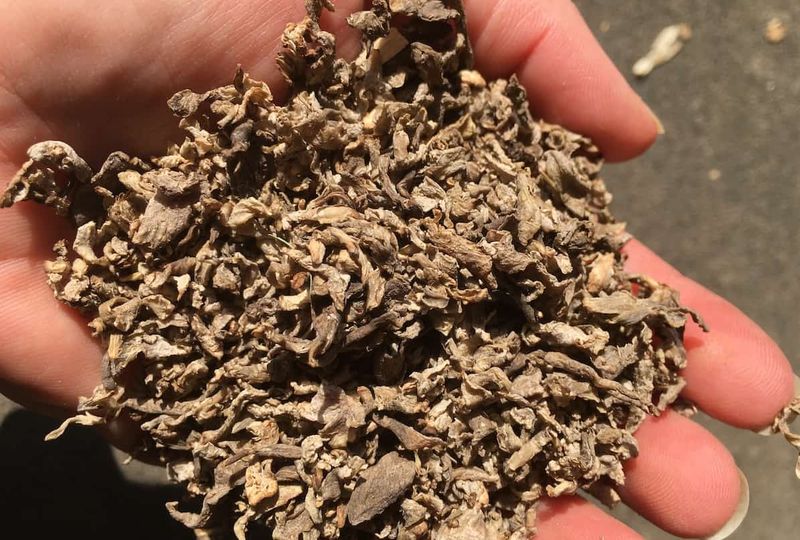
After sugar extraction from sugar beets, the remaining fibrous material becomes a horse nutrition superstar. Soaked before feeding, beet pulp expands to create a mash that’s gentle on sensitive digestive systems. High in digestible fiber yet low in sugar and starch, it provides safe calories without the risks of grain. Many owners use beet pulp to add weight to thin horses or provide easy-to-digest nutrition for seniors.
9. Peppermints
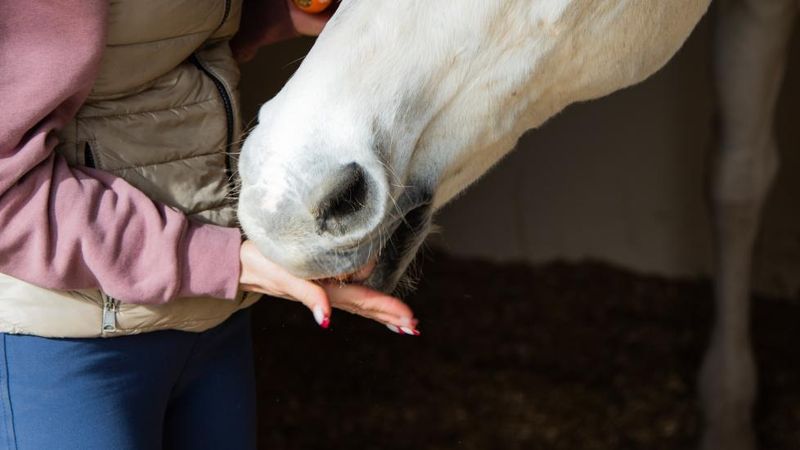
Watching a horse crunch a peppermint candy reveals adorable facial expressions as they process the surprising minty flavor. The strong scent and taste create memorable training rewards horses quickly learn to anticipate.
Many riders keep pockets filled with these treats for post-ride appreciation. While primarily sugar, the small size and occasional nature of peppermint treats make them acceptable indulgences when part of a balanced diet.
10. Fresh Watermelon
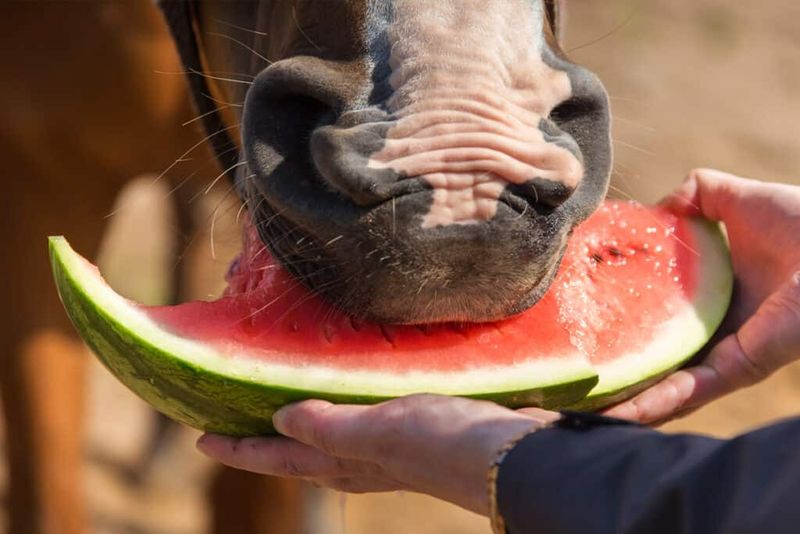
Summer heat brings out horses’ appreciation for juicy watermelon chunks. The high water content helps with hydration while the sweet flavor makes it an irresistible seasonal treat. Horses can safely eat the pink flesh and even the green rind, though seeds should be removed.
The cooling effect makes watermelon particularly welcome after workouts or during hot weather when horses might need extra encouragement to stay hydrated.
11. Bran Mash
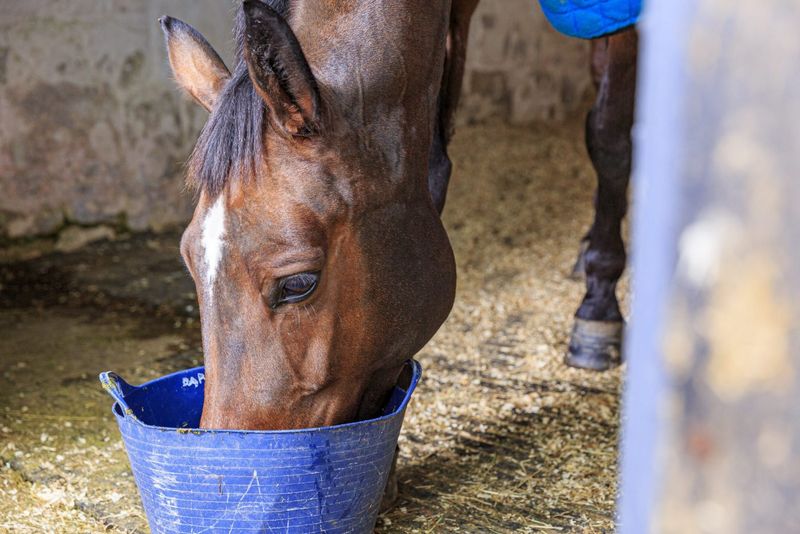
Steaming warm bran mixed with water creates a fragrant, comforting meal horses eagerly anticipate. Traditionally given as weekly treats, these special mashes break the monotony of regular feeding routines.
While wheat bran alone lacks balanced nutrition for daily feeding, occasional mashes provide psychological benefits and mild hydration. Modern recipes often include electrolytes, apples, or carrots for added nutrition and flavor horses find impossible to resist.
12. Commercial Horse Treats
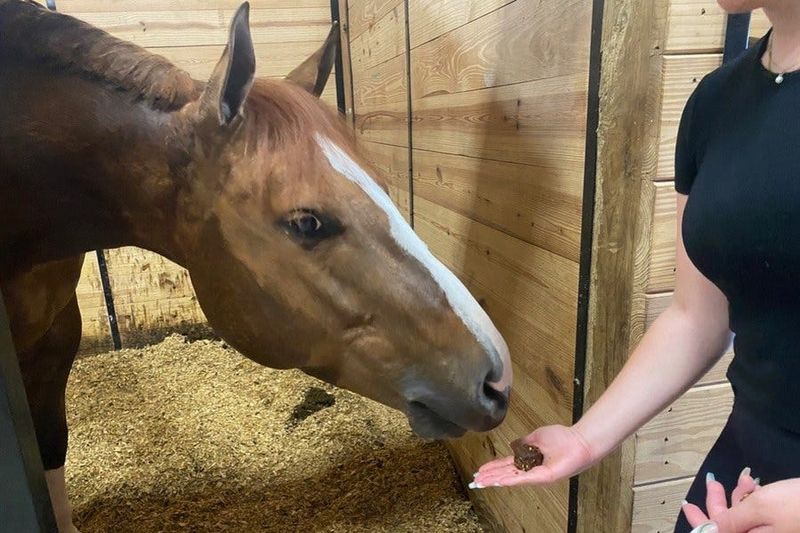
Specially formulated goodies in horse-friendly shapes and flavors fill treat aisles at every feed store. From apple-cinnamon nuggets to peppermint stars, these manufactured treats combine appealing flavors with convenient storage.
Many commercial treats contain added vitamins or supplements disguised within tasty packages. Their uniform size and consistency make them perfect for training sessions, and shelf-stable formulations ensure treats remain fresh during trail rides or competitions.
13. Herbs And Botanicals
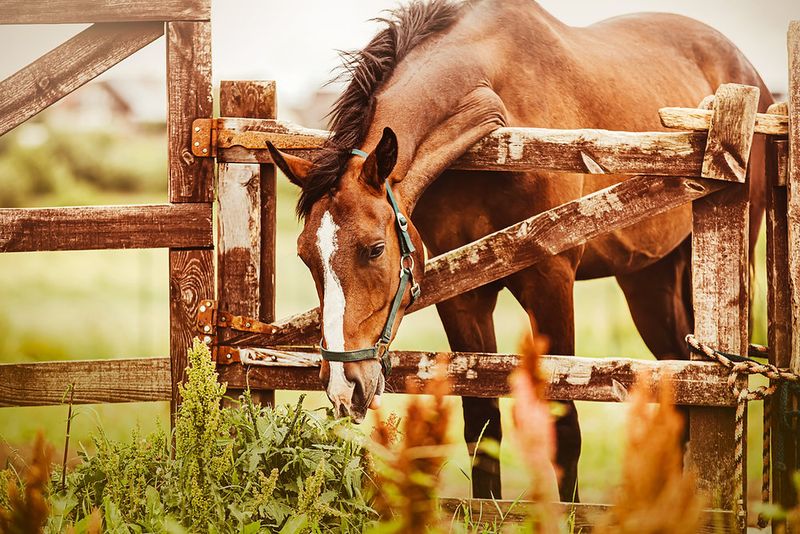
Fragrant herbs like mint, chamomile, and oregano appeal to horses’ sensitive noses and taste buds. Many equines develop preferences for specific herbs, showing excitement when favorite flavors appear.
Beyond taste, certain herbs offer functional benefits – peppermint may aid digestion, chamomile has calming properties, and oregano contains natural antimicrobials. Thoughtful owners incorporate small amounts of safe herbs into feeds to enhance palatability while potentially supporting wellness.

